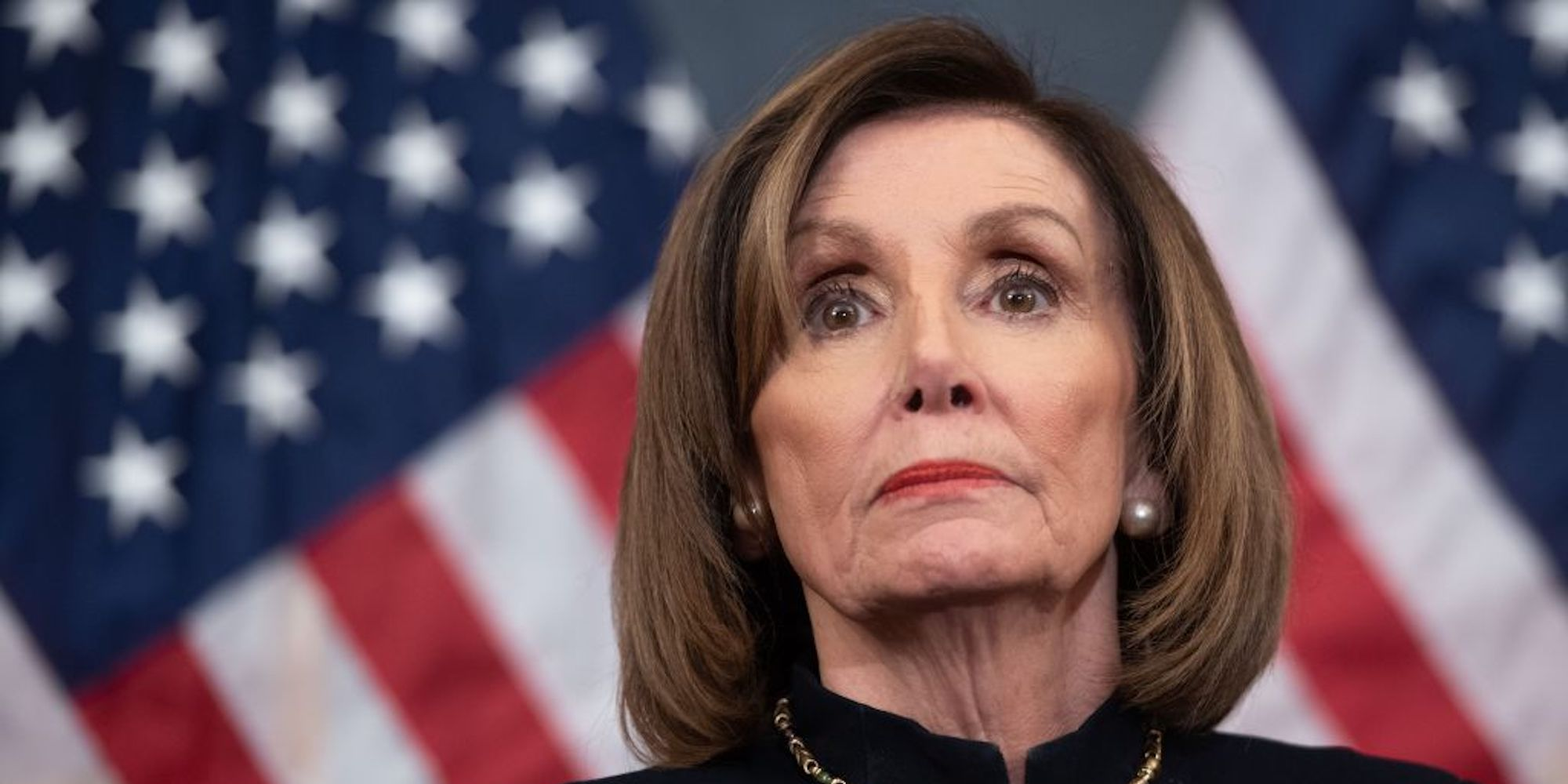- House Speaker Nancy Pelosi told reporters after the House’s vote to impeach President Donald Trump that Democrats might hold back sending the articles of impeachment to the Senate.
- “We can’t name managers until we see what the process is on the Senate side, and I would hope that would be soon,” Pelosi said. “So far, we haven’t seen anything that looks fair to us.”
- In holding back from sending the articles, Pelosi would effectively be delaying the beginning of the president’s Senate trial, most likely an attempt to prevent the Republican-controlled Senate from holding a fast trial with the aim of acquitting the president in short order.
- The terms of the Senate trial are set by Senate Majority Leader Mitch McConnell and Senate Minority Leader Chuck Schumer, with McConnell having the final say.
- McConnell has told Fox News he is working closely with the White House to set the terms for the trial, raising concerns from Democrats that Republicans are planning a process meant to hastily acquit Trump.
- Visit Business Insider’s homepage for more stories.
House Speaker Nancy Pelosi, in the wake of the House of Representatives’ historic vote to impeach President Donald Trump on Wednesday night, launched a dramatic bid to extract concessions from Republican Senate Majority Leader Mitch McConnell over the terms of the president’s trial.
Pelosi told reporters after the vote, which saw Trump impeached on charges of abuse of power and obstruction of Congress, that Democrats were waiting to see how McConnell would lay out the terms of the president’s trial before sending the articles of impeachment to the Senate.
Sending the articles to the Senate would formally begin Trump’s trial.
“We can’t name managers until we see what the process is on the Senate side, and I would hope that would be soon. So far, we haven’t seen anything that looks fair to us,” Pelosi said after the impeachment votes.
For several weeks, Democratic and Republican leaders have tussled over the terms of the trial. There are few guidelines for impeachment trials in the US Constitution, so the terms - such as duration, number of witnesses, and evidence guidelines - will be set by McConnell and his Democratic counterpart, Sen. Chuck Schumer.
By signaling her desire to delay the beginning of the trial, Pelosi appears to be attempting to prevent the Republican-led Senate from staging a short trial aimed at acquitting Trump as quickly as possible.
Democrats favor a more thorough, longer trial, which could be damaging to the president, despite the low likelihood of his removal from office.

Under the rules, House Democrats will send several trial managers to take part in the impeachment trial, essentially presenting the House's case for impeaching the president. But once the terms of impeachment are sent to the Senate, McConnell will have a key role in deciding the terms of the trial.
Comments by McConnell in a recent Fox News interview, in which he said he was not impartial and that he was working closely with the White House to set the terms of the trial, have been criticized by Democrats.
"Everything I do during this, I'm coordinating with the White House counsel. There will be no difference between the president's position and our position as to how to handle this to the extent that we can," he said.
Pelosi referenced the remarks when asked Wednesday about the grounds for delaying a trial.

"This is what I don't consider a fair trial," she explained. "That leader McConnell has stated that he's not an impartial juror, that he's going to take his cues, in quotes, from the White House, and he's working in total coordination with the White House counsel's office."
Republicans reportedly favor holding a short trial early in the year and calling no witnesses. They believe that this would work to the president's advantage, allowing him to brandish a likely acquittal verdict as he launches himself back into the bid for reelection.
Democrats are reported to favor a longer trial, where testimony from witnesses would damage Trump's credibility and reinforce the case for removing him from office.
McConnell, when asked about a potential delay, shrugged it off.
"I'm in no hurry," he said, according to Washington Examiner David Drucker.

